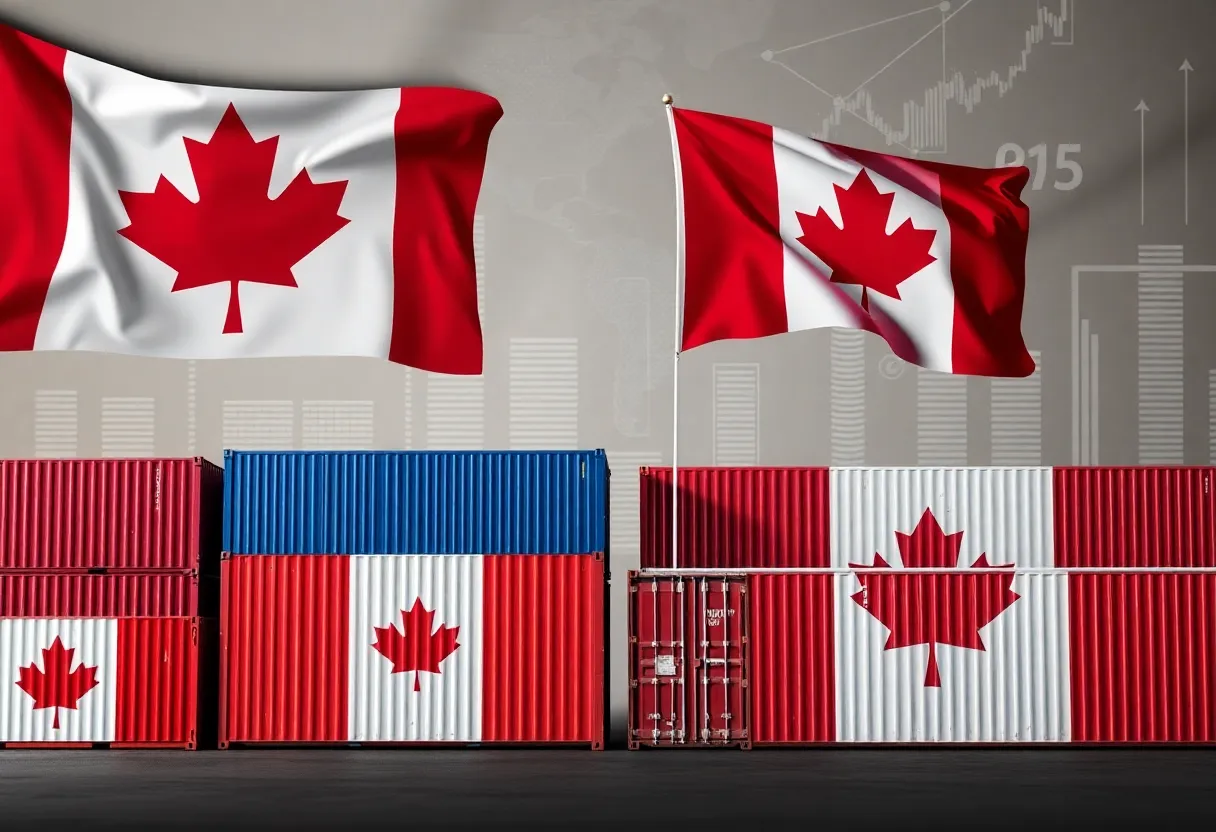

Visual representation of trade tensions following the announcement of new tariffs.
President Trump has announced new tariffs of 25% on imports from Mexico and Canada, and 10% on goods from China. This decision has triggered strong reactions from Canada and Mexico, both promising to retaliate. Experts warn of potential price hikes and the risk of a full-blown trade war. As trade relationships shift, there are significant implications for consumers, businesses, and the broader economy in North America.
In a bold move that has stirred ripples across the North American trade landscape, President Trump has decided to impose hefty tariffs on imports from Mexico and Canada, as well as a significant tariff on goods from China. This action, effective as of Tuesday, has set the stage for what could be a tricky trade conflict for everyone involved.
The new tariffs are set at a staggering 25% on all goods coming from Mexico and Canada, while imports from China will be subject to a 10% tariff. The president argues that these tariffs aim to tackle the persistent issues of illegal immigration and the influx of fentanyl, which has been a growing concern in the country.
It didn’t take long for the reaction from Canada to come rolling in. Canadian Prime Minister Justin Trudeau has announced that Canada will hit back with its own tariffs, starting with a 25% duty on around $20 billion worth of American goods. And that’s just the beginning—he’s warned that an additional $85 billion could follow within three weeks. Trudeau’s government has expressed regret over the situation, emphasizing the strong and historic ties shared between the two neighbors.
Down south, President Claudia Sheinbaum of Mexico was quick to respond as well, dismissing the accusations linking her country to drug trafficking as “slander.” She made it clear that Mexico will not take these tariffs lightly and plans to deploy “tariff and non-tariff measures” to safeguard its interests. This shows that Mexico is not backing down and is ready to defend its economy.
Meanwhile, China isn’t sitting idly by either. The country’s Ministry of Commerce has announced plans to file a complaint with the World Trade Organization (WTO) concerning these tariffs. They’ve also hinted at implementing unspecified “countermeasures,” indicating that the trade tension is just heating up.
Now, what does this mean for the average person? Well, brace yourself for potential price hikes on a wide array of everyday goods. From groceries to clothing, analysts are warning that these tariffs may lead to an increase in prices, raising concerns about inflation. This could make shopping a little tougher on the wallet.
With Canada and Mexico being the largest trading partners of the U.S., responsible for over 40% of all American imports, the implications of these tariffs stretch far and wide. Experts predict that Mexico’s economy could face severe repercussions, potentially heading toward recession. This comes with the grim possibility of significant job losses and factory closures, which is alarming for workers in the region.
But it doesn’t stop there; the tariffs could also impact U.S. workers negatively. Some assembly plants might feel the strain, and grocery prices could rise, essentially squeezing American households. Additionally, the tariffs kill a previously enjoyed de minimis exemption that allowed goods valued under $800 to enter the U.S. without duties. This could hit small businesses and e-commerce hard, adding more fuel to the fire.
It’s interesting to note that President Trump has pointed to the International Emergency Economic Powers Act as the basis for implementing these tariffs, framing it as a necessary measure for national security to combat border issues and drug trafficking. Whether this justification will hold water in the long run remains to be seen.
The unfolding situation is poised to escalate as countries consider their next moves. With both Canada and Mexico ready to retaliate, we might be looking at a full-blown trade war on the horizon. The stakes are high, and we could see even further enhancement of tariffs if retaliatory actions are taken.
As this issue continues to develop, it will be crucial to keep an eye on the impacts on consumers, businesses, and the broader economy as this trade tension unfolds. We are certainly living in interesting times with these significant changes in trade relationships!
News Summary The Trump administration's recent changes to the National Endowment for the Arts (NEA)…
News Summary Mexican President Claudia Sheinbaum has firmly rejected U.S. President Donald Trump's proposal to…
News Summary Colin Jost and Michael Che brought their comedic flair to Weekend Update, tackling…
News Summary A catastrophic collision near Yellowstone National Park resulted in the tragic loss of…
News Summary Mark Carney's election win has ushered in a transformative period for Canada, emphasizing…
News Summary The sudden termination of AmeriCorps funding in Iowa has resulted in significant job…